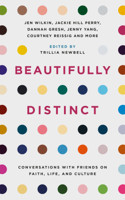
Parents are often told to read to their children. It helps children to learn to read for themselves if we read to them—regularly and often—from a very young age. Nearly all little children love stories and rhymes, and can be encouraged to take pleasure and delight in language and books. Parents should cultivate that early love for as long as they can.
As we grow up, we all continue to read in some way. We read textbooks while in school in order to learn. We read newspapers and magazines in order to be informed. As Christians, we read the Bible in order to know God and grow in him. But for too many, something happens to strip away the natural love of reading stories. We don’t read books for pleasure in the way that children do. We may make sure we have time for books on theology and Christian living, but we don’t bother venturing into other genres.

Inspires women to engage with life and culture in a God-honoring way.
But the theologian Kevin Vanhoozer says that imagination, trained and developed by reading literature, is “a vital ingredient” in the believer’s sanctification. We shouldn’t think of books as merely an educational tool (though they are a very effective one). Reading stories and loving language can help us to pursue God and love his people more.
There are some who enjoy books on theology and Christian living but stay away from novels and poetry. It’s true that it is well worth reading books specifically designed to help us grow as Christians. But just as an athlete training for a marathon must vary her exercise and train in a variety of ways to maximize her performance in the race, so a reader will find that reading various types of books can strengthen her vocabulary, comprehension, and critical thinking skills. These things can enhance our enjoyment and understanding of the Bible and theology books.
For example, some of the best works of theology use poetic language and figures of speech to present powerful truths even more powerfully. The mind exercised by reading poetry or poetic prose is often more receptive to the tendrils of truth contained in such literary language. This goes for Scripture, too. The Bible is composed of various literary genres—each with its own rules and demands—and the language of the Bible is some of the most beautiful and most-cited in the world. Improving our reading skills helps us to understand and appreciate God’s revealed word as he speaks to us through it by his Spirit.
The better we become at reading, and the more thoroughly and carefully we read, the more we will enjoy both language and the God-created world that language describes.
Literature also trains and forms our minds more generally. We are by nature creatures of imagination, and the way we form and feed the imagination is no small matter. We need imaginations which seek God and connect our story to his: which look out for ways in which he is working in our lives and the lives of those around us.
God expressed delight in his created world by declaring that it was good, and he wants his image bearers, too, to experience delight in what is good. One way we can appreciate the world around us is through books. The better we become at reading, and the more thoroughly and carefully we read, the more we will enjoy both language and the God-created world that language describes.
Reading good literature allows us to delight in a story well told, a phrase well turned, a description well captured, or a truth well expressed. That is good stewardship of God’s wonderful gift of language. And becoming aware of these things in books will help us to take notice of what we see in the world around us and to find meaning in it. Instead of walking straight past the fuzzy pink slipper left on the sidewalk, we might wonder how it got there and where its partner is. Instead of focusing on our work or the music in our headphones on the train, we might look at the people around us and wonder where they are going and what experiences have brought them this far. These are small, everyday examples of the use of human imagination. But they are different only in degree from the big, universal questions about the human condition: Who am I? Where did I come from? What is the meaning of my life?
The answers to these questions are found only in the word of God. But it is in little acts of imagination that such questioning can begin.
Reading is a wonderful way of helping children to learn. It’s not just that it teaches them language and helps them develop their own reading and writing skills. It also introduces them to people, places, and experiences that they may not face directly. It is the same for any of us: reading expands our mental, emotional, and imaginative horizons. As Christians seeking to love those around us, we can read in order to develop empathy and compassion for our real- life neighbors.
But reading also leads us to delight in the world our God has created: the endless variety of people, places and creatures he has made. There is so much to enjoy in his gifts to us of imagination, creativity, and language. This is the best reason of all to read to children and to teach them using books. I encourage people of any age to read not only the things they feel they “should” read, but also the things they like to read. Science fiction, historical novels, romance, crime, nature writing, poetry, plays, non-fiction. Let reading be delightful! And pray that reading may lead you closer to the Lord.
How should we listen to, and think in a gospel way about, the ordinary things we come across in modern life? Things we watch, read, eat, and do. There are so many voices saying so many different things that the temptations are to either disengage completely, or find ourselves being influenced more and more by the world.
In Beautifully Distinct, godly, clear-thinking women talk about a range of areas of life and culture. They help us to be thoughtful about films, books, and the media; set out biblical principles for approaching topics such as body image and racism; and encourage us to shape the world around us for Christ—becoming beautifully distinct.